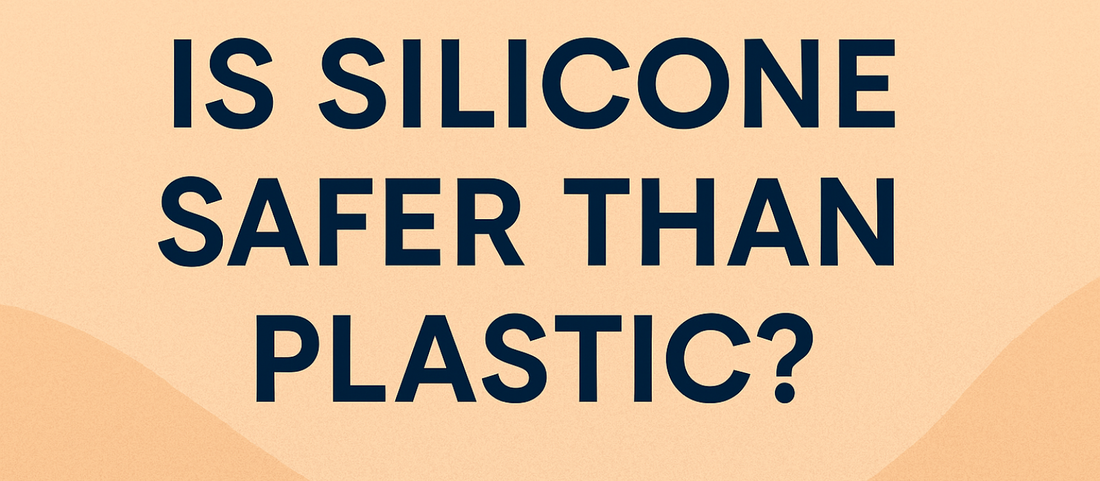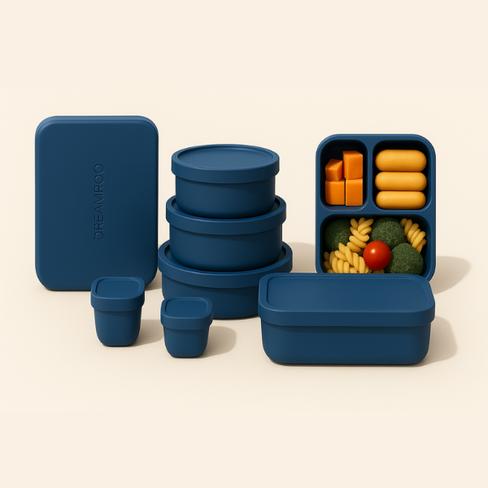
Is Silicone Safer Than Plastic? Here’s What You Need to Know
Is Silicone Safer Than Plastic? The Answer Every Parent Should Know
When it comes to food storage, baby feeding, or everyday kitchen tools, the safety of the materials you use matters—especially for families. One of the most common questions we hear is: “Is silicone safer than plastic?” The short answer? Yes, in many ways—especially when you're choosing high-quality, food-grade silicone.
What Is Silicone?
Silicone is a flexible, rubber-like material made from silica (a natural element found in sand). Unlike conventional plastic, it doesn't rely on petroleum-based chemicals and doesn't contain additives like BPA, BPS, or phthalates that can leach into food—especially when heated.
Why Silicone Is Considered Safer Than Plastic
1. No Harmful Chemicals
Plastics—especially cheaper or older ones—can contain toxins like BPA (Bisphenol A) and phthalates, which have been linked to hormone disruption and other health concerns. Food-grade silicone is BPA-free, non-toxic, and stable even when exposed to heat.
2. Heat Resistance
Plastic can warp, melt, or release chemicals when used in the microwave, dishwasher, or oven. Silicone, on the other hand, is designed to withstand extreme temperatures—from the freezer to the oven—without breaking down or releasing harmful compounds.

3. Durable and Long-Lasting
Silicone doesn’t degrade like plastic, which can crack or become brittle over time. That means fewer replacements, less waste, and safer food storage for your family.
4. Eco-Friendly Choice
While silicone isn't biodegradable, it's far more durable than plastic and can be reused for years—helping you reduce single-use plastic waste and live more sustainably.
When Is Silicone the Better Option?
- For Baby Feeding Products: Babies chew, drop, and microwave things—often daily. BPA-free silicone is a worry-free material for bibs, bowls, plates, and utensils.
- For Food Storage: Silicone won’t leach chemicals, even with hot foods, oils, or sauces. It’s microwave-, oven-, and dishwasher-safe—making it ideal for busy families.
- For Kitchen Accessories: From splash guards to Utensil Case, silicone offers safety, slip-resistance, and easy cleaning—without plastic’s downsides.
What to Look For
Not all silicone is created equal. Look for products made with platinum-grade or food-grade silicone (like Dreamroo’s), and always check that items are BPA-free and FDA-approved for food contact.
The Bottom Line: Yes, Silicone Is Safer Than Plastic
If you're trying to reduce exposure to toxins, improve sustainability, and simplify life with safe, practical tools—silicone is the smarter, safer choice. It’s one of the reasons Dreamroo was founded: to give parents, homemakers, and eco-conscious families better alternatives that work beautifully in real life.





